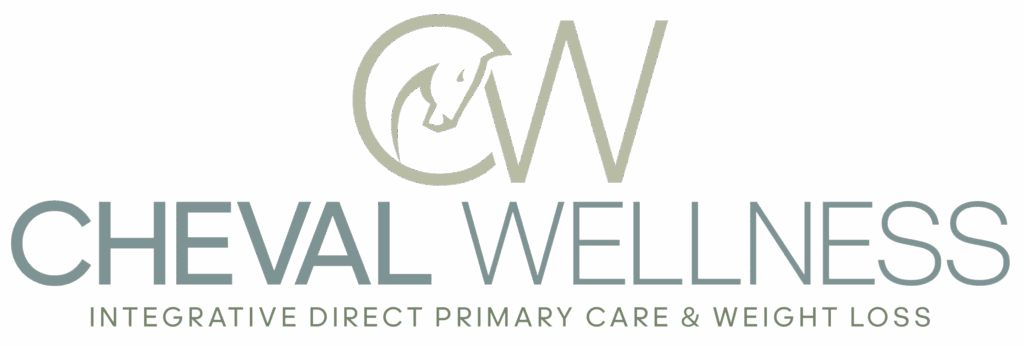Understanding the Link Between HRT and Increased Muscle Mass
Hormone Replacement Therapy (HRT) has long been recognized for its role in managing symptoms of hormone deficiency, particularly in aging men and women. However, emerging research suggests that HRT may also play a significant role in enhancing muscle mass and strength, leading to improved physical performance and overall health. This article explores the connection between HRT and increased muscle mass, shedding light on how it works, its benefits, potential risks, and who might be a suitable candidate for this therapy.
The Role of Hormones in Muscle Growth
Hormones are critical regulators of muscle metabolism, growth, and repair. Several hormones, including testosterone, estrogen, growth hormone (GH), and insulin-like growth factor 1 (IGF-1), contribute to maintaining lean muscle mass. As individuals age, natural hormone levels decline, leading to muscle loss, decreased strength, and a slower metabolic rate—a condition known as sarcopenia.
Testosterone and Muscle Development
Testosterone, often referred to as the male sex hormone, is the most well-documented anabolic (muscle-building) hormone. It enhances protein synthesis, increases muscle fiber size, and boosts overall muscle strength. While men naturally have higher levels of testosterone, women also require this hormone for optimal muscle function.
A decline in testosterone, commonly seen with aging or certain medical conditions, can lead to muscle wasting, fatigue, and reduced exercise performance. HRT, specifically testosterone replacement therapy (TRT), is often prescribed to counteract these effects and support muscle maintenance and growth.
Estrogen’s Role in Muscle Health
Though testosterone receives much of the attention regarding muscle growth, estrogen is equally important, particularly for women. Estrogen helps regulate muscle function, improve muscle recovery, and reduce inflammation. Postmenopausal women often experience a decline in estrogen, which can contribute to increased muscle loss and weakness. Estrogen-based HRT may help mitigate these effects and support muscle retention.
How HRT Enhances Muscle Mass
HRT contributes to increased muscle mass through several mechanisms, including:
- Enhanced Protein Synthesis: Testosterone and estrogen stimulate muscle protein synthesis, allowing the body to repair and build stronger muscle fibers more efficiently.
- Improved Muscle Fiber Recruitment: Hormones help activate satellite cells, which are essential for muscle regeneration and growth.
- Increased Energy and Performance: Restoring hormonal balance can improve energy levels, leading to better exercise performance and greater gains in muscle mass over time.
- Reduction in Fat Mass: HRT has been shown to aid in reducing body fat while preserving lean muscle, creating a more favorable body composition.
- Enhanced Recovery: Proper hormonal balance can decrease muscle soreness and accelerate recovery after intense workouts.
The Science Behind HRT and Muscle Growth
Multiple studies have demonstrated the positive effects of HRT on muscle mass and strength. Research indicates that men undergoing testosterone therapy experience increased lean muscle mass, reduced fat mass, and improved physical performance. Similarly, postmenopausal women who receive estrogen therapy have reported better muscle retention and reduced risk of sarcopenia.
A study published in the Journal of Clinical Endocrinology & Metabolism found that testosterone supplementation in older men led to significant gains in muscle strength and size compared to a placebo group. Additionally, research in women suggests that estrogen therapy contributes to maintaining muscle function and reducing inflammation, which aids in muscle recovery.
Who Can Benefit from HRT for Muscle Growth?
HRT is not suitable for everyone, but certain individuals may experience significant benefits, including:
Aging Adults
Men and women over the age of 40 often experience a decline in key hormones, leading to decreased muscle mass and strength. HRT can help mitigate age-related muscle loss, allowing individuals to maintain an active lifestyle.
Individuals with Hormonal Deficiencies
Those diagnosed with conditions such as hypogonadism (low testosterone levels) or menopause-related hormone deficiencies may benefit from HRT to restore muscle function and strength.
Athletes and Fitness Enthusiasts
While professional athletes should be cautious about the use of HRT due to regulatory concerns, individuals looking to maintain their physical performance as they age may consider HRT under medical supervision.
Potential Risks and Considerations
Although HRT offers numerous benefits for muscle growth, it is not without potential risks. Some of the most common concerns include:
- Cardiovascular Risks: Some studies suggest that testosterone therapy may increase the risk of heart disease, particularly in individuals with pre-existing conditions.
- Hormonal Imbalance: Incorrect dosages or improper monitoring can lead to hormonal imbalances, causing side effects such as acne, mood swings, or fluid retention.
- Prostate Health (in Men): Excess testosterone can lead to an enlarged prostate or, in rare cases, contribute to prostate cancer progression.
- Breast Cancer Risk (in Women): Estrogen therapy has been linked to a slightly increased risk of breast cancer in some cases, making careful monitoring essential.
- Liver and Kidney Function: Long-term hormone therapy may impact liver and kidney function, necessitating regular health check-ups.
Best Practices for Safe and Effective HRT
If you are considering HRT for muscle growth, it is crucial to follow best practices to ensure both safety and effectiveness:
- Consult a Specialist: Work with a hormone therapy expert to determine if HRT is right for you based on your individual health profile.
- Regular Monitoring: Routine blood tests should be conducted to track hormone levels and adjust dosages accordingly.
- Combine with Exercise: HRT is most effective when paired with a structured resistance training program to maximize muscle gains.
- Follow a Balanced Diet: A protein-rich diet, combined with essential nutrients, will support muscle growth and overall health while on HRT.
- Lifestyle Modifications: Adequate sleep, stress management, and hydration are essential for achieving the best results from HRT.
Conclusion: Is HRT the Right Choice for You?
Understanding the link between HRT and increased muscle mass is essential for anyone considering this therapy. While HRT can provide significant benefits in terms of muscle preservation, strength, and overall well-being, it is not a one-size-fits-all solution. Consulting with a qualified healthcare provider is crucial to determining if HRT is appropriate for your specific needs.
If you are experiencing muscle loss, decreased strength, or other symptoms of hormone imbalance, professional evaluation is the first step toward regaining optimal health. To explore your options and receive expert guidance on hormone replacement therapy, contact Cheval Wellness today. Their team of specialists is dedicated to helping you achieve a healthier, more vibrant life through personalized treatment plans tailored to your unique needs.
Dr. Angela Mineo, a DNP-trained Nurse Practitioner and founder of Cheval Wellness, is dedicated to helping women feel like themselves again through personalized hormone optimization and medical weight loss. With years of experience in ICU and primary care, she combines evidence-based medicine with a deeply compassionate, unrushed approach to patient care.

